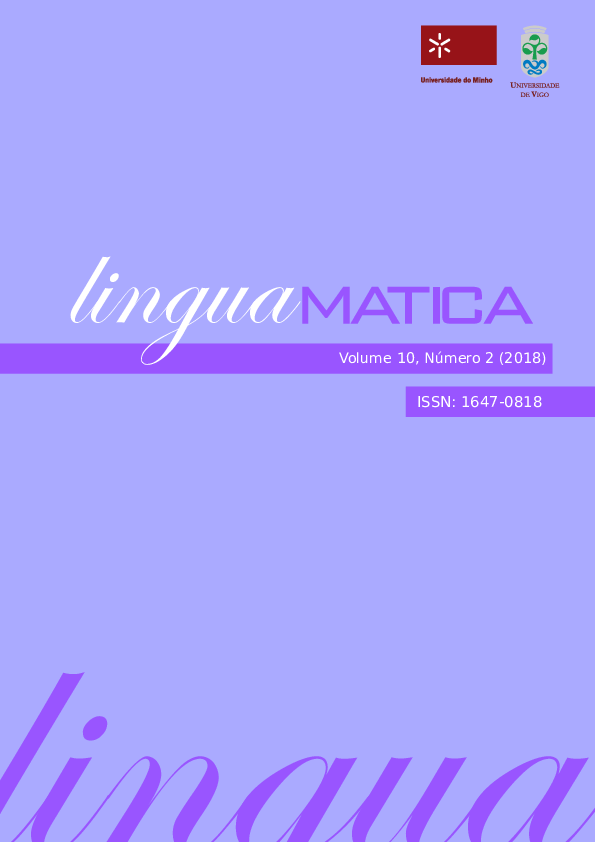Automated Paraphrasing of Portuguese Informal into Formal Language
Abstract
This paper presents the automation process of paraphrasing and converting Portuguese constructions typical of informal or spoken language into a formal written language. We illustrate this automation process with examples extracted from the e-PACT corpus that involve the placement of clitic pronouns in verbal compound
contexts. Our task consists in paraphrasing and normalizing, among others, constructions such as vou-lhe/posso-lhe fazer uma surpresa into vou/posso fazer -lhe uma surpresa (I will/can_to him/her make a surprise / I will/can make_to him/her a surprise; I will/can make him/her a surprise), where the clitic pronoun lhe migrates from an enclitic position immediately after the first verb of the verbal compound to an enclitic position after the main verb, which is the verb responsible for the selection of that pronominal argument. The first verb is either an auxiliary verb or a volitive verb, e.g., quere "want". This is a standard revision procedure in European Portuguese. Cases like this represent linguistic phenomena where language students and language
users in general get confused or "stumble". The paper focuses on general language where the phenomena being observed occur, describes examples of interest found in the corpus, and presents an automatic
solution for the normalization of informal syntactic inadequacies found in the researched structures into standard structures typical of formal or professional writing through the application of very
generic transformational grammars.
Copyright (c) 2019 Anabela Marques Barreiro, Ida Rebelo-Arnold, Jorge Baptista, Cristina Mota, Isabel Garcez

This work is licensed under a Creative Commons Attribution 4.0 International License.
Authors who publish with this journal agree to the following terms:
- Authors retain copyright and grant the journal right of first publication with the work simultaneously licensed under a Creative Commons Attribution License that allows others to share the work with an acknowledgement of the work's authorship and initial publication in this journal.
- Authors are able to enter into separate, additional contractual arrangements for the non-exclusive distribution of the journal's published version of the work (e.g., post it to an institutional repository or publish it in a book), with an acknowledgement of its initial publication in this journal.
- Authors are permitted and encouraged to post their work online (e.g., in institutional repositories or on their website) prior to and during the submission process, as it can lead to productive exchanges, as well as earlier and greater citation of published work (See The Effect of Open Access).













